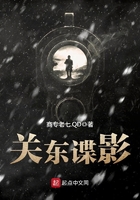The carriage in which Nekhludoff had taken his place was half filled with people. There were in it servants, working men, factory hands, butchers, Jews, shopmen, workmen's wives, a soldier, two ladies, a young one and an old one with bracelets on her arm, and a severe-looking gentleman with a cockade on his black cap. All these people were sitting quietly; the bustle of taking their places was long over; some sat cracking and eating sunflower seeds, some smoking, some talking.
Taras sat, looking very happy, opposite the door, keeping a place for Nekhludoff, and carrying on an animated conversation with a man in a cloth coat who sat opposite to him, and who was, as Nekhludoff afterwards found out, a gardener going to a new situation. Before reaching the place where Taras sat Nekhludoff stopped between the seats near a reverend-looking old man with a white beard and nankeen coat, who was talking with a young woman in peasant dress. A little girl of about seven, dressed in a new peasant costume, sat, her little legs dangling above the floor, by the side of the woman, and kept cracking seeds.
The old man turned round, and, seeing Nekhludoff, he moved the lappets of his coat off the varnished seat next to him, and said, in a friendly manner:
"Please, here's a seat."
Nekhludoff thanked him, and took the seat. As soon as he was seated the woman continued the interrupted conversation.
She was returning to her village, and related how her husband, whom she had been visiting, had received her in town.
"I was there during the carnival, and now, by the Lord's help, I've been again," she said. "Then, God willing, at Christmas I'll go again."
"That's right," said the old man, with a look at Nekhludoff, "it's the best way to go and see him, else a young man can easily go to the bad, living in a town."
"Oh, no, sir, mine is not such a man. No nonsense of any kind about him; his life is as good as a young maiden's. The money he earns he sends home all to a copeck. And, as to our girl here, he was so glad to see her, there are no words for it," said the woman, and smiled.
The little girl, who sat cracking her seeds and spitting out the shells, listened to her mother's words, and, as if to confirm them, looked up with calm, intelligent eyes into Nekhludoff's and the old man's faces.
"Well, if he's good, that's better still," said the old man.
"And none of that sort of thing?" he added, with a look at a couple, evidently factory hands, who sat at the other side of the carriage. The husband, with his head thrown back, was pouring vodka down his throat out of a bottle, and the wife sat holding a bag, out of which they had taken the bottle, and watched him intently.
"No, mine neither drinks nor smokes," said the woman who was conversing with the old man, glad of the opportunity of praising her husband once more. "No, sir, the earth does not hold many such." And, turning to Nekhludoff, she added, "That's the sort of man he is."
"What could be better," said the old man, looking at the factory worker, who had had his drink and had passed the bottle to his wife. The wife laughed, shook her head, and also raised the bottle to her lips.
Noticing Nekhludoff's and the old man's look directed towards them, the factory worker addressed the former.
"What is it, sir? That we are drinking? Ah, no one sees how we work, but every one sees how we drink. I have earned it, and I am drinking and treating my wife, and no one else."
"Yes, yes," said Nekhludoff, not knowing what to say.
"True, sir. My wife is a steady woman. I am satisfied with my wife, because she can feel for me. Is it right what I'm saying, Mavra?"
"There you are, take it, I don't want any more," said the wife, returning the bottle to him. "And what are you jawing for like that?" she added.
"There now! She's good--that good; and suddenly she'll begin squeaking like a wheel that's not greased. Mavra, is it right what I'm saying?"
Mavra laughed and moved her hand with a tipsy gesture.
"Oh, my, he's at it again."
"There now, she's that good--that good; but let her get her tail over the reins, and you can't think what she'll be up to. . . .
Is it right what I'm saying? You must excuse me, sir, I've had a drop! What's to be done?" said the factory worker, and, preparing to go to sleep, put his head in his wife's lap.
Nekhludoff sat a while with the old man, who told him all about himself. The old man was a stove builder, who had been working for 53 years, and had built so many stoves that he had lost count, and now he wanted to rest, but had no time. He had been to town and found employment for the young ones, and was now going to the country to see the people at home. After hearing the old man's story, Nekhludoff went to the place that Taras was keeping for him "It's all right, sir; sit down; we'll put the bag here, said the gardener, who sat opposite Taras, in a friendly tone, looking up into Nekhludoff's face.
"Rather a tight fit, but no matter since we are friends," said Taras, smiling, and lifting the bag, which weighed more than five stone, as if it were a feather, he carried it across to the window.
"Plenty of room; besides, we might stand up a bit; and even under the seat it's as comfortable as you could wish. What's the good of humbugging?" he said, beaming with friendliness and kindness.
Taras spoke of himself as being unable to utter a word when quite sober; but drink, he said, helped him to find the right words, and then he could express everything. And in reality, when he was sober Taras kept silent; but when he had been drinking, which happened rarely and only on special occasions, he became very pleasantly talkative. Then he spoke a great deal, spoke well and very simply and truthfully, and especially with great kindliness, which shone in his gentle, blue eyes and in the friendly smile that never left his lips. He was in such a state to-day.















